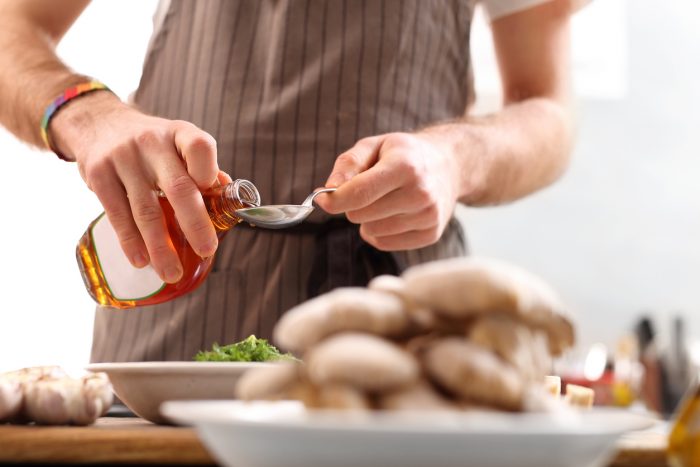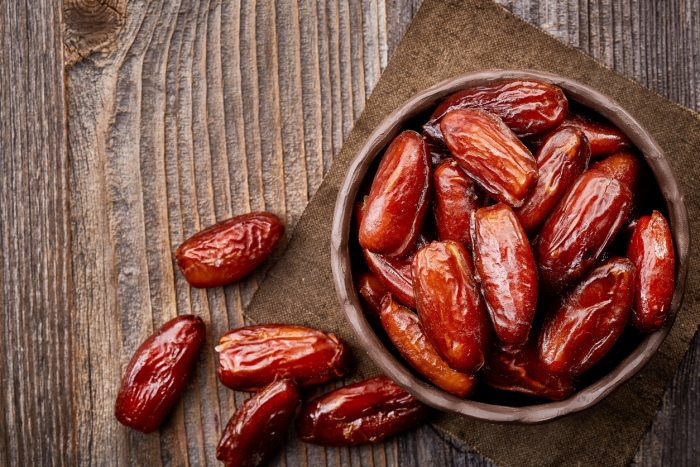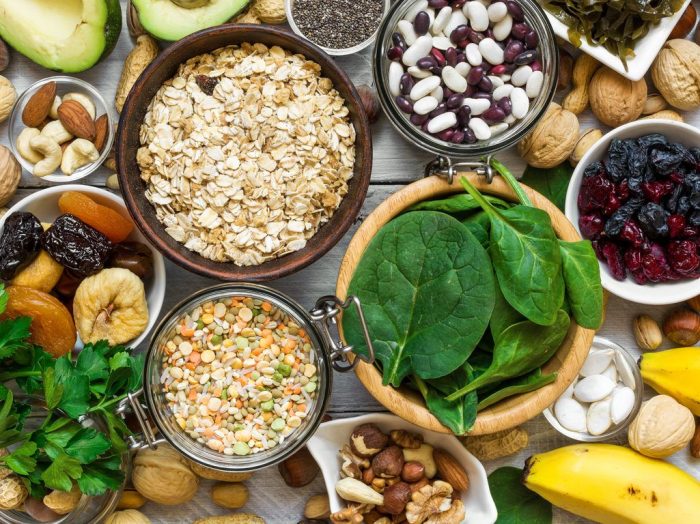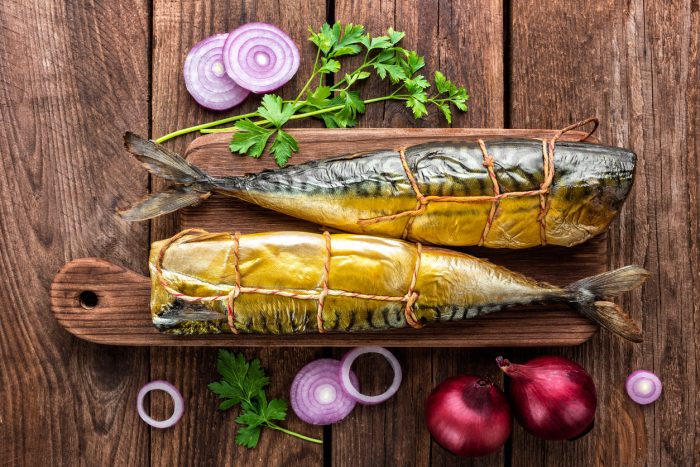If you’re trying to reduce your sugar intake without being concerned about calories, then you should know which are the healthiest natural sweeteners you can replace it with.
We all agree that sugar isn’t expensive and you can use it to make sweet and tasty things, from baked goods to refreshing drinks. But let’s say your doctor tells you to limit your sugar consumption or you want to start a detox. The reasons you want to replace sugar with natural sweeteners can be varied. Yes, we said “natural”, and that means no aspartame, no saccharin, no sorbitol, xylitol, or mannitol. Because having these sweeteners often, even if they’re generally less sweet and caloric than sugar, is sometimes even worse for your health.
5 natural sweeteners to replace sugar with
1. Maple syrup
One of the more popular natural sweeteners today is maple syrup. Although it has more calories than sugar (1 tablespoon – 52 calories) and it contains sucrose, it’s a one hundred percent natural sweetener that is claimed to be more nutritious and healthier than sugar.
Maple syrup is made from the sugary circulating fluid of maple trees. It contains manganese, calcium, potassium, and zinc; it’s rich in antioxidants and helps to neutralize free radicals and reduce oxidative damage.
In the United States, maple syrup is either classified as grade A (further categorized into 3 groups: Light Amber, Medium Amber, and Dark Amber) or grade B (the darkest of them all). The dark syrups have a stronger maple flavor and are usually used for baking or in recipes, while the lighter ones are rather used directly as syrups, drizzled on pancakes.

2. Raw honey
Raw honey has more calories than sugar: 64 calories per tablespoon as opposed to 48 calories. But it’s less bad for you than sugar. Plus, it’s a natural sweet liquid produced by bees from the nectar of flowers. Raw honey is honey that hasn’t been heated, pasteurized, clarified, or filtered in any way. Raw honey has more of the health-promoting nutrients than the processed one. It’s packed with enzymes, antioxidants, iron, zinc, potassium, calcium, phosphorous, vitamin B6, riboflavin, and niacin. All those substances help to neutralize free radicals while promoting the growth of healthy bacteria in the digestive tract. Still, if you cook with it, raw honey loses most of its nutrients, but it still can sweeten your coffee.
If you’re concerned about the number of calories per tablespoon comparing to sugar, note that it is sweeter than sugar, so you’ll need to use less. Use it in sauces and hot drinks! When you want to use it in baking, keep in mind that you’ll need fewer fluids in the recipe because honey is liquid.
To enjoy its benefits, eat it raw: drizzle it on breakfast cereals, over your sprouted grain toast, on yogurt, and for salad dressings. If you drink your coffee or tea sweetened, wait until the drink is just tepid enough, and then add honey.
3. Dates
You can’t replace sugar with dates in all desserts, but when you can, do it! One date has 66 calories, but dates may help to reduce LDL cholesterol in the blood and may reduce the risk of stroke. Dates are loaded with potassium, copper, iron, manganese, magnesium, and vitamin B6. They are easily digested and help metabolize proteins, fats, and carbohydrates.
To use dates as natural sweeteners, you have to make a paste. First, soak them in hot water until soft. Keep the soaking liquid to use it for making the paste. Use a food processor to process your soaked dates, along with one tablespoon of the soaking liquid, and blend until smooth. If needed, add more water, to create a thick paste, with a texture similar to peanut butter.
Date paste can replace sugar in the same quantity in most recipes, unlike stevia. You can use it in sugar-free cookies, cake, muffin, and pie recipes. You can also use this paste to sweeten up a smoothie or a salad dressing.

4. Coconut sugar
One of the natural sweeteners that have become very popular in the past few years is coconut sugar. One tablespoon of coconut sugar has 45 calories, but it’s more nutritious and lower on the glycemic index than sugar.
Regular table sugar means empty calories and no vital nutrients. Coconut sugar contains polyphenols, iron, zinc, calcium, potassium, antioxidants, phosphorous, and other phytonutrients.
It’s easy to replace sugar with coconut sugar! Just measure it like you measure sugar! If your recipe needs powdered sugar or a finer texture, grind it in your food processor because this type of sweetener is a bit more coarse.
If you’re going to use coconut sugar, then use it sparingly, Healthline.com advises us. It is slightly “less bad” than regular sugar, but definitely not something you should eat every day.
5. Stevia
Refined sugar can be incredibly harmful if you eat large quantities daily. That’s why people are looking for healthy alternatives like natural sweeteners. If the reason you want to quit or take a break from sugar consumption, you may be tempted to choose from the low-calorie sweeteners on the market. But most of them are artificial! Stevia is the only one that’s natural and has no calories! We mean zero calories!
Stevia is a green, leafy plant that is native to South America. If you can’t find stevia leaves, you can opt for stevia powder, liquid extract, dissolvable tablets, or baking blends. Unlike raw honey, stevia is heat stable, so feel free to use it in any way you desire. It’s 200 times sweeter than sugar, so don’t use it in the same ratio.
If you want to sweeten your coffee, it’s simple! Just drop some stevia in it. But for baking, it can be tricky because refined sugar also has a bulking role. If you’re using stevia instead of sugar, you only need to use a small quantity. That’s why you need to bulk the whole quantity of ingredients with something else, like fresh fruit puree, yogurt, roasted winter squash, or whipped egg whites. Make adjustments to get the right consistency.
Except for stevia, which is the healthiest natural sweetener, honey, dates, coconut sugar, and maple syrup should be eaten in moderation, the same as sugar.
You may also like to read: The Sweet Tooth Challenge: What to Eat If You Want to Quit Sugar!
Here’s a simple pancake recipe you can start with:






